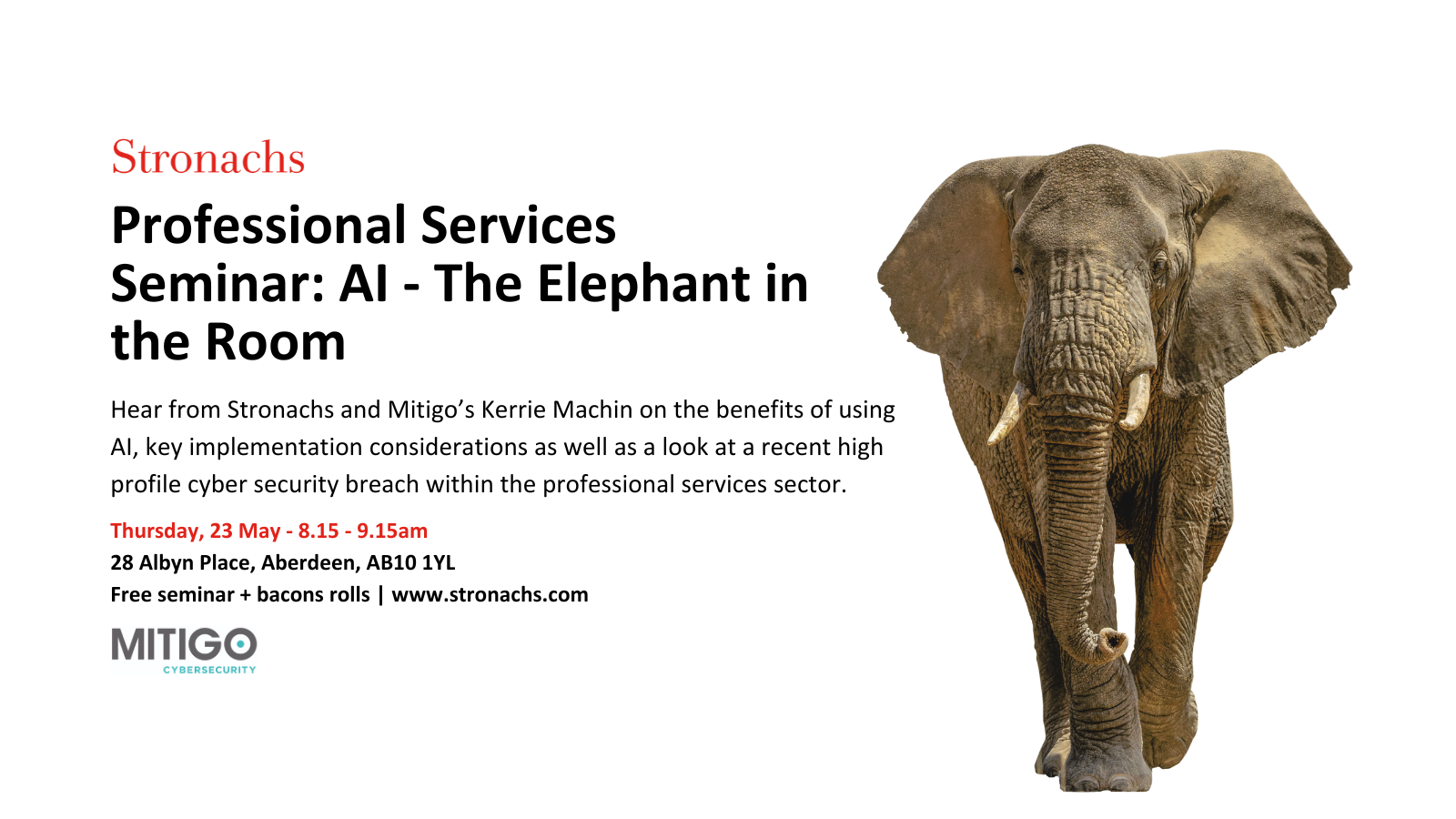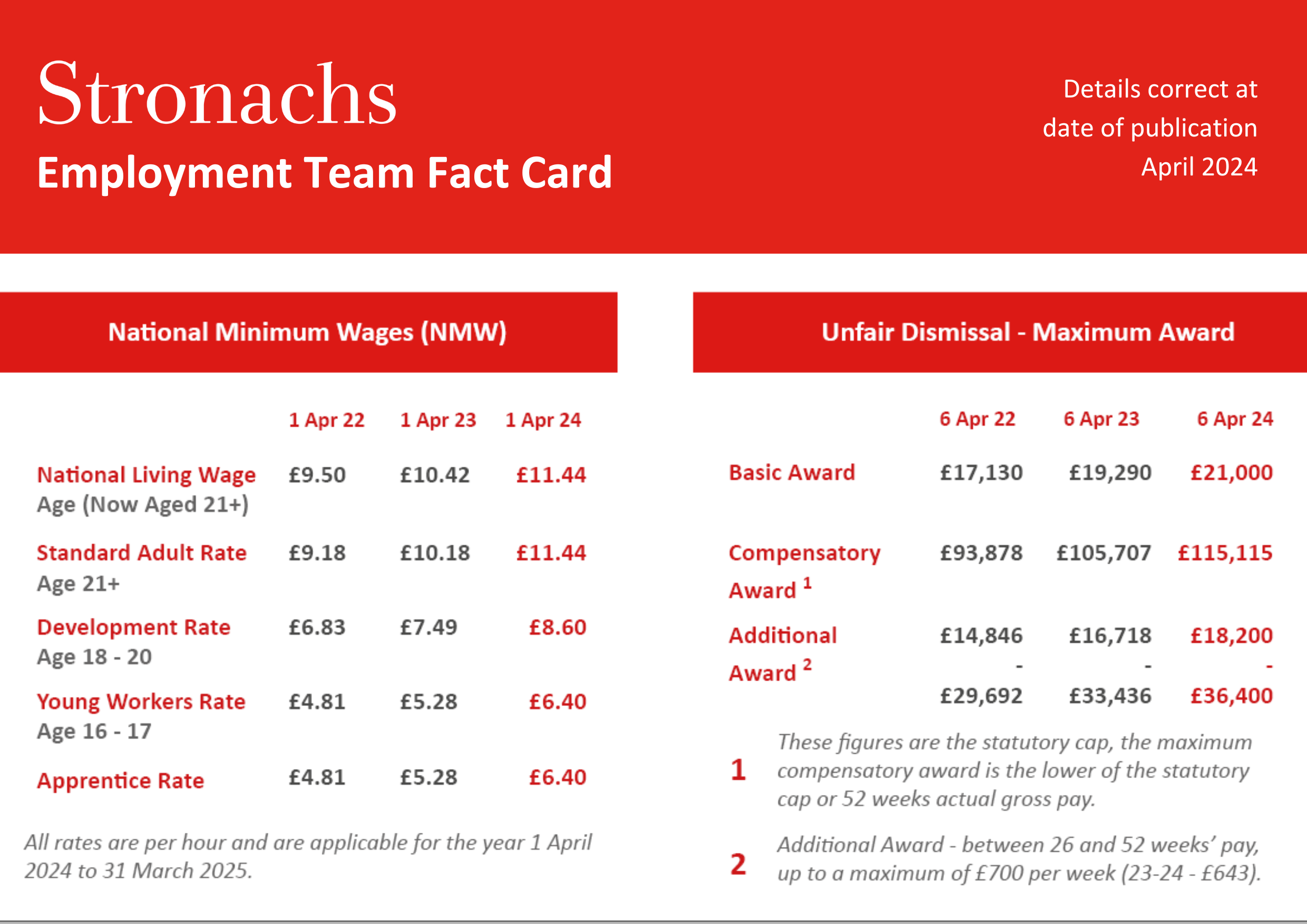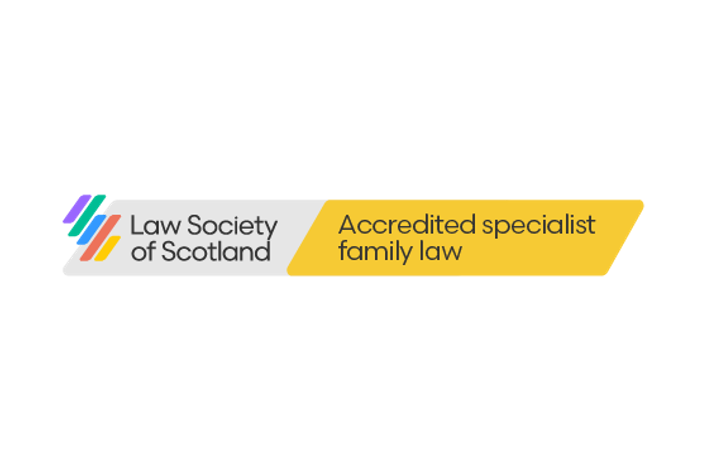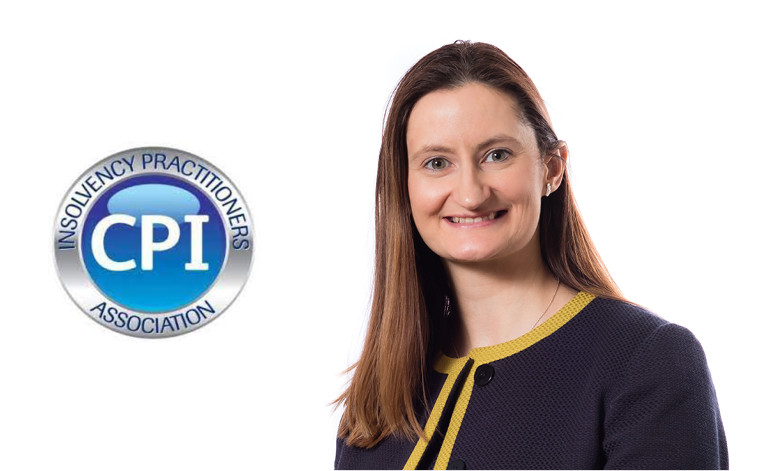
Stronachs has announced the promotion of four Senior Solicitors and two new appointments amid recent financial success and strong activity levels.

Stronachs will welcome Kerrie Machin, partner at Mitigo to its offices on Thursday, 23 May.

During April 2024 there are a number of employment law changes. The government has announced changes to the statutory amounts for 2024. The Employment Rights (Increase of Limits) Order contains the full list of increases. View the Employment Law Fact Card to learn more about a number of the key changes.

Stronachs has achieved an advanced cyber security accreditation, Cyber Essentials Plus, following an independent audit in March 2024.

Michelle Sharp, senior associate in the Dispute Resolution team at Stronachs LLP has been accredited as a specialist in family law by the Law Society of Scotland.

Cybersecurity for Professional Services : Breakfast Seminars with Mitigo Cybersecurity
Aberdeen : 28 Albyn Place at 8am on 21 Nov 2023
Inverness : The Kingsmills Hotel at 8am on 22 Nov 2023

The 2024 editions of Chambers & Partners Legal Guide UK and Legal 500 UK have been launched, with Stronachs LLP being recognised in both. The two annual reviews of the UK’s legal market rank the leading firms and lawyers in Scotland.

Deborah Law, partner in the dispute resolution team, has been awarded the Certificate of Proficiency in Insolvency (CPI). Deborah was one of eight candidates from England, Scotland and Wales to earn a merit and was ranked first of the Scottish candidates.